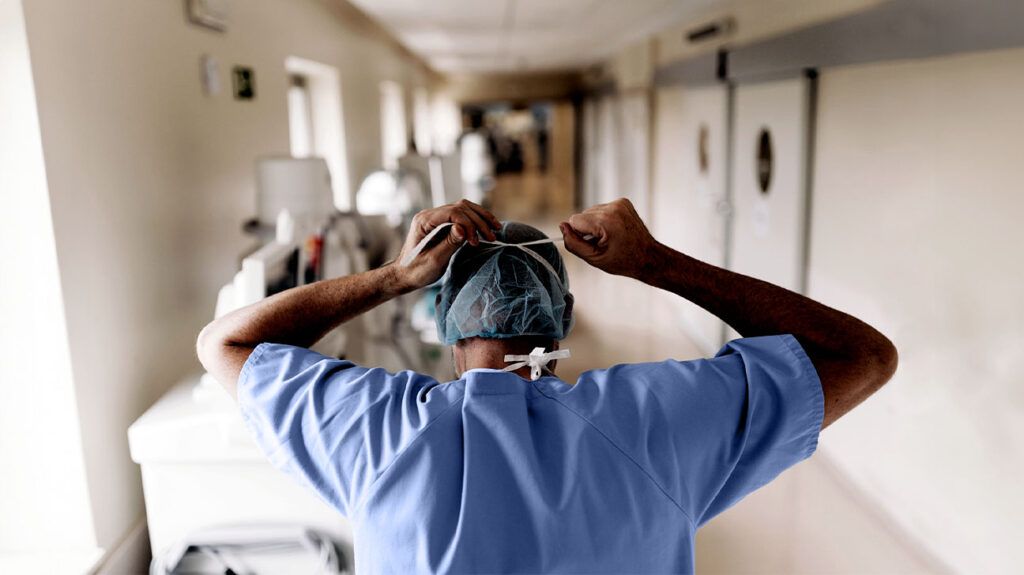An orchiectomy is the surgical removal of one or both testicles to treat testicular cancer. A person can speak with a doctor to find out how to prepare for the surgery and what to expect afterward.
Many people with testicular cancer will undergo treatment with orchiectomy.
This article looks at what to expect before and after surgery, recovery, and life after surgery.

Before undergoing an orchiectomy, people
Preparation before an orchiectomy
- giving informed consent
- medical tests, such as blood tests and electrocardiograms, to check people are safe for surgery
- stopping using tobacco products, if applicable
- losing excess weight or increasing exercise
- avoiding alcohol
- stopping certain medications or supplements if a doctor advises
- stopping eating or drinking before surgery
- a healthcare professional may shave the surgical site
Just before an orchiectomy, people will have a general anesthetic that puts them to sleep and prevents them from feeling pain.
After surgery, doctors may move a person to a recovery room while the effects of the anesthesia wear off. People will wake up gradually and may still feel sleepy as the medication wears off.
Pain may increase as the anesthesia eases, but a doctor will give people pain medication to manage this.
People may experience some side effects after surgery, such as:
- nausea
- chills
- vomiting
- sore throat from the breathing tube
Doctors will continue monitoring functions, such as breathing and heart rate, while people recover.
People
What to expect after removing the lymph nodes
Surgery to remove the lymph nodes, called retroperitoneal lymph node dissection (RPLND), is
People may have drainage tubes from the surgical site after the procedure for a few days. They may be able to go home 3–7 days after RPLND.
People will usually be able to go home on the same day as the orchiectomy.
Pain
Hospital advice suggests applying a covered ice pack to the groin or scrotum for 10 minutes at a time in the 24 hours following surgery.
Wound care
The Memorial Sloan Kettering Cancer Center states that a person can care for their wound by:
- removing the bandage before showering 48 hours after surgery
- leaving any Steri-strips on
- gently washing the wound with soap
- rinsing thoroughly with water
- patting dry
- placing gauze over the wound
People can do this each day until their next follow-up with a doctor.
When can a person resume their usual activities?
Regular movement may help promote recovery. However, people may need to avoid heavy lifting, strenuous exercise, and contact sports for 4 weeks.
A doctor will let people know when they can return to work, which may be longer if their job requires physical effort.
People may be able to drive 1 week after an orchiectomy.
People may be able to resume their usual activities after 4 weeks after an orchiectomy, but for some, recovery may be longer.
Recovery from RPLND may take even longer. In some cases, late side effects of RPLND may occur months or even years after surgery.
The following outlines how surgery for testicular cancer might affect some aspects of a certain’s life.
Sex
According to the
The loss of both testicles may reduce sex drive and erectile function due to lower testosterone levels. If this happens, taking testosterone supplements may help.
RPLND does have a risk of nerve damage, which may cause retrograde ejaculation. Nerve-sparing RPLND may help prevent this.
Fertility
In some cases, the surgical removal of one testicle is not likely to affect fertility. If fertility is going to return, it usually does so after
Doctors may advise people to wait 1 year for sperm to recover before trying to conceive after chemotherapy or radiotherapy.
If a person undergoes surgery to remove both testicles,
Appearance
People may choose to have an artificial testicle, a type of prosthesis, which doctors implant in the scrotum. This may happen during an orchiectomy or as a separate surgery.
The prosthesis will feel and look similar to a testicle.
Mental health
Some people
Learn more about the mental health resources available.
Possible risks of orchiectomy
- excessive bleeding
- blood clots
- anesthesia reactions
- infections
Support resources for testicular cancer include:
The following are answers to common questions about surgery for testicular cancer.
What are the disadvantages of removing one testicle?
There is around a 2% risk of testicular cancer developing in the remaining testicle. Testicular self-exams and regular check-ups can help detect any cancerous changes promptly.
What are the side effects of removing one testicle?
Removal of one testicle may cause short-term side effects, such as pain, but will not usually affect sex drive, erections, or fertility. Removal of lymph nodes may affect ejaculation.
Can a person live a typical life after curing testicular cancer?
People will usually be able to live a typical life after curing testicular cancer. The remaining testicle will typically create enough testosterone to keep people healthy, and sperm growth will usually recover after cancer treatments.
What is the life expectancy for testicular cancer?
Testicular cancer is
How much does an orchiectomy for testicular cancer cost?
The cost can vary greatly depending on a person’s insurance coverage. People can speak with the hospital or physician billing departments to get advice on the specific cost of the procedure.
To treat testicular cancer, a person may require a surgical procedure called an orchiectomy. This involves removing one or both testicles.
Before an orchiectomy, a doctor will explain the procedure, provide instructions, and take medical tests to check that people are safe for surgery.
Afterward, people may be able to go home on the day of an orchiectomy. Rest, gentle exercise, and proper wound care can help aid recovery.
